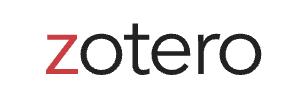Publication Ethics
This statement clarifies the ethical behavior of all parties involved in the act of publishing articles in our journals, including authors, editors, reviewers, and publishers. This statement is based on the COPE Best Practice Guidelines for Journal Editors.
Ethical Guidelines for Journal Publication
Publishing an article in Matsnawi: Journal of Tasawwuf and Psychotherapy Studies that is double-blind peer-reviewed is an important building block in the development of a coherent and respected knowledge network. It is a direct reflection of the quality of the work of the authors and the institutions that support them. Peer-reviewed articles support and embody the scientific method. Therefore, it is important to agree on expected standards of ethical behavior for all parties involved in the act of publishing: authors, journal editors, reviewers, publishers, and the public.
The Department of Tasawwuf and Psychotherapy-Institut Agama Islam Negeri (IAIN) Cirebon as the publisher of this Journal takes its duty of guardianship over all stages of publishing very seriously and we are aware of its ethical and other responsibilities. We are committed to ensuring that advertising, reprints, or other commercial revenues have no impact or influence on editorial decisions. In addition, the Editorial Board will assist in communication with other journals and/or publishers where this is useful and necessary.
Publication Decisions
The editors of Matsnawi: Journal of Tasawwuf and Psychotherapy Studies are responsible for deciding which articles submitted to the journal will be published. The validity of the work in question and its importance to researchers and readers should always drive the decision. The editors may be guided by the policies of the journal's editorial board and constrained by applicable legal requirements regarding defamation, copyright infringement and plagiarism. Editors may confer with other editors or reviewers in making these decisions.
Fair Play
The editors at all times evaluate manuscripts for their intellectual content without regard to the author's race, gender, sexual orientation, religious beliefs, ethnic origin, nationality, or political philosophy.
Confidentiality
Editors and editorial staff should not disclose any information about a submitted manuscript to anyone other than the corresponding author, reviewers, potential reviewers, other editorial advisors, and the publisher, as appropriate.
Disclosures and Conflicts of Interest
Unpublished material disclosed in a submitted manuscript may not be used in the editor's own research without the written consent of the authors.
Reviewer Duties
Contribution to Editorial Decisions
Peer review assists editors in making editorial decisions and through editorial communication with authors can also assist authors in improving the manuscript.
Timeliness
Any selected referee who feels unqualified to review the research reported in the manuscript or knows that a prompt review is not possible should inform the editor and excuse himself/herself from the review process.
Confidentiality
Any manuscript received for review should be treated as a confidential document. It should not be shown or discussed with others unless authorized by the editor.
Standards of Objectivity
Reviews should be conducted objectively. Personal criticism of authors is inappropriate. Reviewers should express their views clearly with supporting arguments.
Acknowledgment of Sources
Reviewers should identify relevant published works that have not been cited by the authors. Any assertion that an observation, derivation, or argument has been previously reported should be accompanied by the relevant citation. Reviewers should also bring to the editor's attention any substantial similarity or overlap between the manuscript under consideration and other published manuscripts of which they are personally aware.
Disclosures and Conflicts of Interest
Privileged information or ideas obtained through peer review should be kept confidential and not used for personal gain. Reviewers should not consider manuscripts that have a conflict of interest resulting from competitive, collaborative, or other relationships or connections with the authors, companies, or institutions associated with the manuscript.
Author Duties
Reporting standards
Authors of original research reports should present an accurate account of the work performed as well as an objective discussion of its significance. The underlying data must be accurately represented in the paper. The paper should contain sufficient detail and references to allow others to replicate the work. Knowingly fraudulent or inaccurate statements are unethical and unacceptable behavior.
Data Access and Storage
Authors are requested to provide raw data in relation to papers for editorial review, and must be prepared to provide public access to such data (in accordance with the ALPSP-STM Statement on







